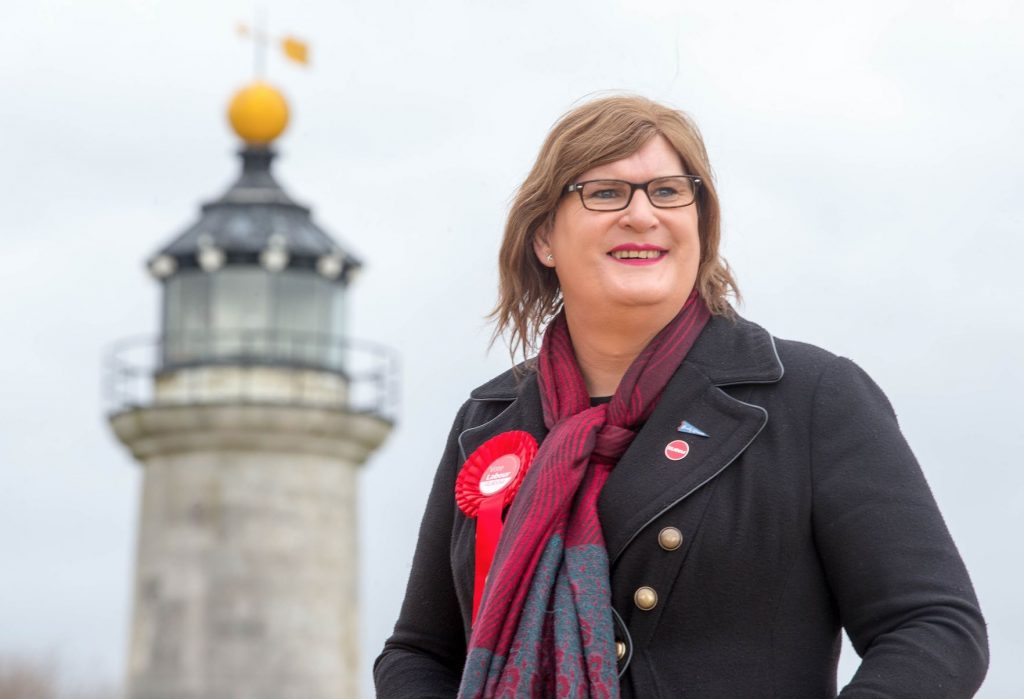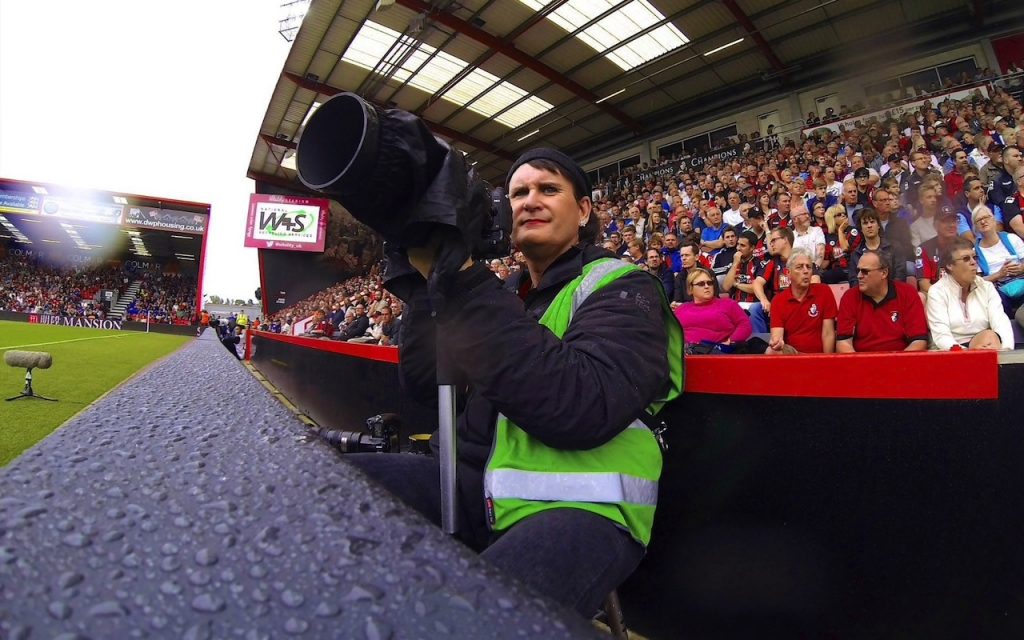“I had friends that were terrified for me coming out in football” — Sophie Cook: The first trans-woman in the Premier League
Sophie Cook was 12 years old the first time she tried to end her life.
In a time before social media and where Pride events were in their infancy, she lived a life of isolation and confusion over her gender-identity.
After realising she was transgender at the age of seven, it took over 40 years for Steve — as she was called then — to transition into Sophie. These four decades included working in the RAF, seven years living in Saudi Arabia, working as club photographer for AFC Bournemouth and numerous more attempts to take her life. In fact, it was while working with the Cherries that she made the transition, becoming the first trans person to work in the Premier League in the process.
After football, a career in politics followed, standing as the Labour candidate for East Worthing and Shoreham in 2017, before recently bringing out a book about her experiences — ‘Not Today: How I chose life.’
‘Not Today’ — her motto for life. The words printed on her left wrist. The words to keep her going when she’s at her lowest. When the suicidal thoughts flood the mind. Not. Today.
In 1974, London Pride had only been going for two years, with just 2000 participants at the inaugural event. Homosexuality had only been decriminalised in the UK for seven years; times, and attitudes, were different.

For a seven-year-old Sophie Cook, it was a turning point: “ I remember going on a family holiday to South Wales. When I met the other kids I told them my name was Jenny, I spent all week like that and I just got away with it and it felt like me.
“At the end of the week these kids came up to me and said ‘Bye Jenny,’ my parents looked at me funny. I looked at them and said: ‘What weirdos they’ve been doing that all week, I’ve got absolutely no idea what they’re talking about.’”
Years of battling with an identity crisis followed, through the RAF, Germany, Saudi Arabia, and finally back to England where her photography career took off. She was initially taking photos at gigs and local football, before landing the job at Bournemouth. The initial fear of coming out to the club led to her living as Sophie during the week and Steve at weekends until the summer of 2015.
Sport, and specifically football, isn’t known for its inclusivity, with homophobic and racist chanting still heard at stadia across the country. An intimidating atmosphere for many, especially a trans-woman who left Bournemouth in May as Steve and returned for pre-season training as Sophie. On her return, manager Eddie Howe said a line Sophie will never forget:
‘What can I do to make it easier for you?’
“When your boss says that it makes the world of difference,” Sophie admitted. “I went in to photograph a training session, Eddie came up and said: ‘Are you scared?’ And I said for the first time in my life I am totally at ease with who I am, so no, I’m not scared.
“They called all the players together in a circle, and assistant manager Jason Tindall said: ‘‘I suppose you’ve noticed our photographer has changed a bit since last season, grown her hair out. I’d like you all to meet Sophie.’ Then the captain Tommy Elphick started clapping, and the rest of the players joined in.
Pre-season training is one thing, but going back to match days, where over 10,000 people squeeze into Dean Court, and many more at away games, is another thing completely. A predominantly white male scene, where the slightest deviation from the norm can be picked apart, scrutinised and abused.
It’s no surprise Sophie initially had reservations about returning to the game, but on a personal level, all was not as bad as anticipated: “I had friends that were terrified for me coming out in football. They said I was going to get so much abuse, they thought I was going to get physically abused, verbally abused.
“But I’ve had so much love and support throughout the game in general, right from the top of the FA. Fans are coming up to me saying: ‘I’m really glad you’re happy and that you can be you.'”

Football is a microcosm of society, and one where many members of the LGBT+ community do not feel welcomed. You can count the number of openly gay football players on one hand, with the late Justin Fashanu being the only professional British player to ‘come out’.
Although there is work being done by Stonewall, Kick It Out — for whom Sophie is an ambassador — and other organisations to combat discrimination in sport, she believes the problem spreads much further than the four stands surrounding the pitch.
She said: “They’re symptoms of a wider problem in society. For the last decade we were doing a really good job of stamping it out in football, it was a real minority, but in the last three years I feel we have gone backwards.
“I think the problem is that a lot of bigots seem emboldened and validated by changes that have happened in the world far outside of football, but I think the work that organisations like Kick It Out do makes a real difference.”
Society as a whole, as well as sport, still has a long way to go, but what will be seen as progress in regards to the LGBT community within football? Is the pressure of the media surrounding an openly gay player in the Premier League so great that it is in fact having a deterring effect? Sophie is hopeful of progress in the future.
“Coming out isn’t a press conference. You don’t come out in front of the world’s media, you come out in a personal way, with a message to your friends.
“I dream of a future where people like me aren’t needed, where we don’t need organisations like Kick it Out, because we have equality and we’ve got rid of bigotry.
“It takes various factors for change to come about; education, awareness, and zero tolerance from clubs, and proper meaningful bans for people who do these things.”
For all the work done by these organisations, it is us — the everyday person on the street — that can ultimately make the biggest difference. Sophie is confident once we adapt to a culture where football fans are called out because of the abuse they give, then headway can finally be made.
“The real change comes when it’s forced by peer pressure from other fans, when other fans turn round and say thats unacceptable.
“It’s important that everyones stands up against homophobia and racism and any sort of bigotry they see, not just in a football ground but out in the streets.
“You cant turn a blind eye to this, if you see it you’ve got to stand up.”
And that final line is the crucial one. This is not just a fight that Sophie needs to fight, or that the LGBT+ community needs to fight. It is one we all need to participate in.
You can buy Sophie’s book ‘Not Today’ HERE.
All photographs/Sophie Cook